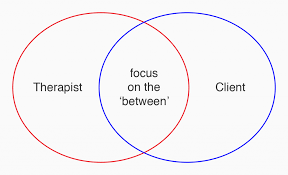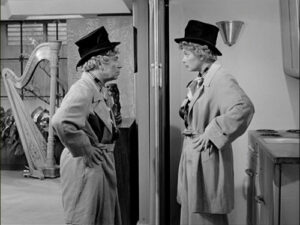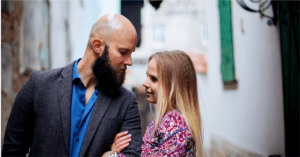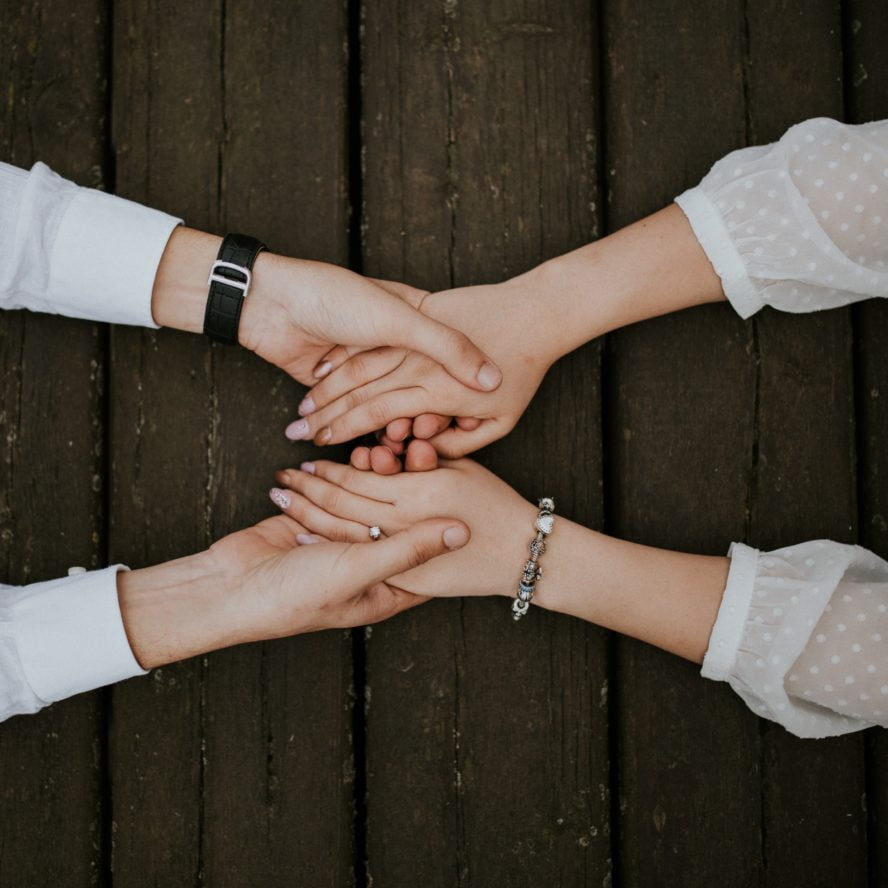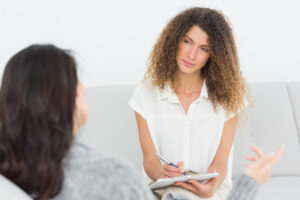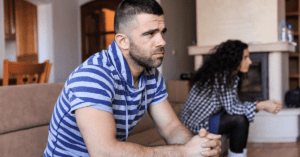Are you looking for a way to improve your relationships? Maybe you are struggling with building trust or have had problems in the past. Relational therapy is an effective treatment that has been used for over 50 years now to help people build better long-term relationships. This article will go into detail on how relational therapy can be beneficial and provide some insight into what it means.
Contents
- 1 What Is Relational Therapy?
- 1.1 The Framework of Relational Therapy
- 1.2 What Skills Do You Learn?
- 1.3 How Effective Is Relational Therapy?
- 1.4 Benefits Of Relational Therapy
- 1.5 What Can I Expect From Relational Therapy?
- 1.6 How Can I Start Relational Therapy?
- 1.7 Limitations Of Relational Therapy
- 1.8 Who Is A Relational Therapist?
- 1.9 Role Of A Relational Therapist
- 1.10 How Can I Work On My Issues Outside Of Therapy?
- 2 Conclusion
What Is Relational Therapy?
Relational therapy is a type of psychotherapy that focuses on interpersonal relationships. Counseling is helpful to people. It helps people cope with relationship problems, develop good communication skills, and strengthen relationships. Relational therapists work with their clients to help them with issues they are having. They might need to deal with trust, commitment, honesty, or intimacy. These things can happen in many relationships like friendships or couples. In the context of couples therapy, therapists help partners resolve issues that negatively impact their relationship. Therapy can involve each partner individually or both partners together in a session.
The Framework of Relational Therapy
As you might have guessed from its name, relational therapy is based on relationships and how they work. The goal of this form of treatment is to help people have better relationships.
There are several ways that relational therapy does this.
- First, it focuses on the relationship between the couple or individual and their therapist. There is an important bond of trust there so therapists need to establish a good relationship with each client they work with for them to feel comfortable talking about what is going on. This might be different for each person. Some people will talk more than others about certain things like their feelings or personal history.
- Second, therapists help clients improve on how they communicate with the other people in their lives (friends and family). They do this by teaching them new skills in communicating effectively. It is also important to understand what nonverbal communication means because that can convey a lot of information too!
- Lastly, relational therapy works by focusing on self-concepts and beliefs. Therapists try to find out who you are as a person. They do this so you can have relationships without problems in the future.
What Skills Do You Learn?
There are several therapeutic techniques that relational therapists use when working with their clients.
Mirroring Technique
One is called the “mirroring technique” which helps people in a relationship feel understood and validated. This involves therapists reflecting back on what their client has said to them. They do this by paraphrasing or repeating it back in their own words. This makes sure that both therapist and client are on the same page and understand each other clearly. It can also help the client feel heard and seen, which can be very important in any type of relationship!
Active Listening
Another common technique used is called “active listening”. This involves therapists paying close attention to what their clients are saying and not interrupting them. They will then reflect on what they have heard to make sure they understand it correctly. Active listening helps therapists understand their clients better and it also allows the client to feel like they are being heard. This can be very helpful in resolving any issues that might be going on!
These are just a few examples of the techniques relational therapists use when working with their clients. As you can see, it is based on communication and understanding between people. It can be a very effective way to help improve relationships!
How Effective Is Relational Therapy?
Relational therapy is very effective because it works with the core of who you are as a person. Many therapists believe that what goes on inside yourself will affect your relationships. This approach helps people see their problems from different angles to come up with better solutions for them. It has been used in couples therapies to help resolve major issues. One person might have lost trust in the other, or one person might not be committed anymore.
It can also be helpful just by itself if someone wants to learn more about themselves and how they relate to others! Relationships are complicated. They can be difficult when there is a lack of communication. You can get guidance that will help with the relationship.
Benefits Of Relational Therapy
There are many benefits that relational therapy has when it comes to building healthy long-term relationships with others. Some of them are:
Better Communication
People learn how to express themselves more clearly and listen well too. This is an important skill for maintaining any type of relationship! They also work on understanding what other people need (even before they know it). If you can make your partner feel understood, you will have a stronger bond. It is all about communication!
Changing Self-Concepts
As mentioned above, relational therapy also helps people by focusing on self-concepts and beliefs. They can change the way they think about themselves which can improve their relationships in turn. It gives them a better sense of who they are as an individual instead of looking at things from one point of view only! This is important if you want different types of relationships with others (friends, family, etc). For example, someone might have anxiety that affects how they behave around people. This could get in the way when it comes to building healthy friendships or romantic relationships.
Building Healthy Relationships
Relational therapy works because it focuses on relationship skills for both individuals involved. If there is a lack of communication or understanding, the therapy can help with that. It is not just one person who needs to change for things to get better – it is both! Relational therapists teach people how to improve their relationships with others and themselves.
What Can I Expect From Relational Therapy?
When you go into relational therapy, several things will be different from regular talk therapy sessions. Some of them include:
Collaborative Relationship Goals
In most cases, your therapist will have two goals in mind when working with you through relational therapy: your goal and theirs. They want what’s best for you but they also need something from you too (like active listening). This can be a new way of looking at therapy for some people.
Relationship-Focused Cognitive Behavioral Therapy
In relational therapy, your therapist will focus on the relationship itself instead of individual issues you might have had in the past or present. This is why it helps with building long-term relationships because they are based on communication and understanding! They can work together to help change any negative patterns that might be going on between them – this includes both people’s behaviors too!
You Can Expect More Time Together Sometimes
Talking and other activities might happen during your therapist’s sessions. It all depends on what you feel comfortable doing during those sessions. Sometimes, they will spend more time together doing activities instead of talking about things. This can be a nice change because it allows you to get closer and understand each other on another level!
More Than Just Talk Therapy
Although talk therapy is used in relational therapy sessions too, there are also other types of techniques that might happen during your sessions too. Your therapist might recommend different exercises or activities for you to do together with the person you want to build better relationships with (like your partner). They may tell you how to use some strategies that are best for both people involved in the relationship. It all depends on what is best, depending on the situation.
How Can I Start Relational Therapy?
You don’t have to worry when it comes to relational therapy – it is not as complicated as you might think! In most cases, your therapist will help guide you through the entire process. You can start by asking your regular therapist if they do relational therapy or finding a therapist who specializes in this type of therapy.
Limitations Of Relational Therapy
There are some limitations to relational therapy. It might not be good for people with mental health issues that affect their relationships with others. This type of therapy does not help with addictions, eating disorders, and other types of problems that focus on behaviors instead of thoughts and attitudes about yourself.
Who Is A Relational Therapist?
A relational therapist is a mental health professional who specializes in helping people build better relationships with others. They use different techniques and strategies to help people change any negative patterns that might be going on between them. This type of therapy can be used for couples, friends, family members, and more!
Role Of A Relational Therapist
A relational therapist helps people build better relationships with others. They use different techniques and strategies to help people change any negative patterns that might be going on between them. This type of therapy is for couples, friends, and family members. It helps them understand each other and communicate better. They help people make positive changes in their relationships. They work with the person’s family to figure out what they want to change about their relationship. Then they use therapy techniques to try and make those changes happen. Sessions usually involve talking with the therapist. Sometimes, people also might do exercises or use other things in addition to talking therapy. People who want to get therapy should first talk with their therapist or find a therapist that specializes in this treatment if they have a mental health disorder.
How Can I Work On My Issues Outside Of Therapy?
In your session, you will learn how to build better relationships with other people. You can also do this outside of the sessions too. You need both! Your therapist should tell you what they are going to do before the session. They make sure everyone understands the goals of the therapy and what is going to happen in the session.
Therapy can be a great way to improve your relationships with others, but it takes effort from both people involved! Relational therapists work on goals that are with their clients. They use relationship-focused cognitive behavioral therapy to help change any negative patterns that might be happening between them. Sessions usually involve more doing things than talking – this way you can get to know someone better. Relational therapy is not as hard as you think. Your therapist will help guide you through the entire process.
Conclusion
Relational therapy is a form of psychotherapy that focuses on the relationship between two people. It’s often used to work through difficult situations in which one person may be struggling with feelings of anger, sadness, or fear and it can also help repair relationships that have been damaged by infidelity or other types of betrayal.
If you are looking for affordable Online Counseling MantraCare can help: Book a trial therapy session


